27 Sep 2023
On 8 September, Xi'an Jiaotong-Liverpool University (XJTLU) hosted a workshop titled “Making the Past Current: The Role of Dark Heritage in Narrating Places and Identities”. This intellectually stimulating event was organized by the Department of Urban Planning and Design at XJTLU Design School in collaboration with the Department of Sociology, Social Policy & Criminology at the School of Law and Social Justice, University of Liverpool.
The workshop provided a platform for scholars, researchers, and students to engage in thought-provoking discussions on the intricate relationships between dark heritage, places, and identities. It highlighted the importance of re-evaluating and reimagining the narratives that shape our understanding of history and heritage.
“For most, heritage represents what we inherit from the past and what we pride ourselves on in the present. Often, heritage communicates and symbolises all that is good, great, and glorious. In recent years, a growing awareness has emerged regarding the darker aspects of our heritage.
“Sites marred by warfare, atrocity, genocide, colonisation, or punishment, though overlooked by traditional notions of ‘heritage’, hold stories that are essential for understanding our pasts,” says Dr Yiwen Wang, organiser of the workshop.
The workshop brought together some of the leading researchers and historians dedicating their life’s work to dark heritage. Through a profound examination of case studies from around the world, the event aimed to uncover the intricate ways in which these sites are intertwined with our collective memory, shedding light on the complexities of history and identity.
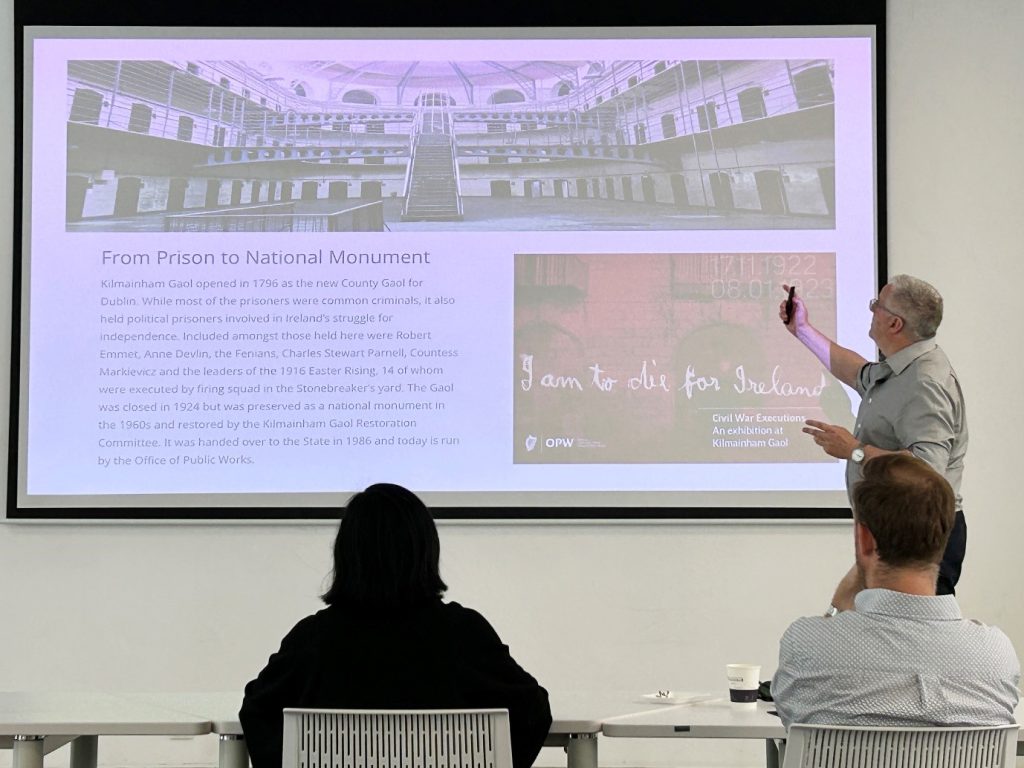
Barry Godfrey explains how the Kilmainham Gaol in Dublin was transformed into a national monument
Penal Heritage in Nation Building
Barry Godfrey, University of Liverpool, began with a captivating talk titled “Penal heritage and the complicated history of convicts Australia”. The talk highlighted the complexity of different identities and their representation in history, particularly how dark heritage narratives can continue to wield oppressive power even after their use is discontinued.
Katherine Roscoe, University of Liverpool, presented “Diversifying heritage narratives in the post-convict era: Cockatoo Island Prison, Sydney (1839-69)”, a thought-provoking exploration of the evolving narratives surrounding heritage sites. She addressed the frequent lack of alignment between fact and narrative in presenting dark heritage sites.
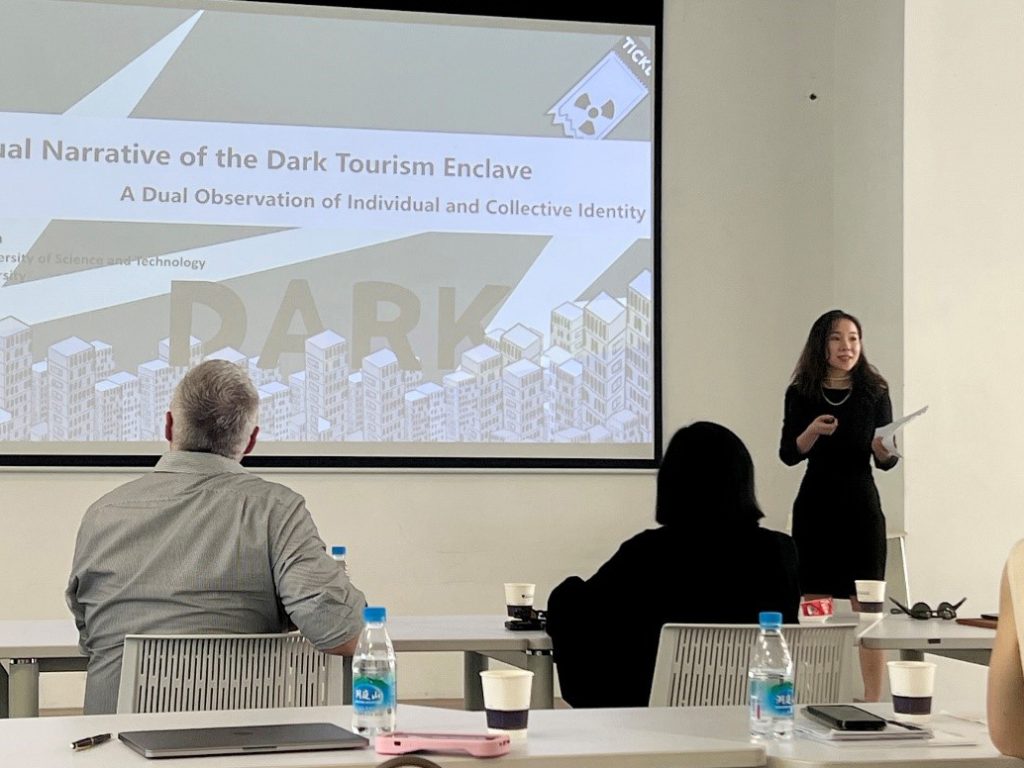
Jiaojiao Sun offers fresh perspectives on the intersection of tourism and identity
Dark Heritage Tourism and Individual or Collective Identities
Jiaojiao Sun from the Suzhou University of Science and Technology delved into “The ritual narrative of the dark tourism enclave: a dual observation of individual and collective identity”. Drawing on her empirical study on the Memorial of the Nanjing Massacre and the 9/11 Memorial Ground Zero in New York, she elucidates how tragedies can yield touristic fascination amid national trauma.
Gao Du from XJTLU, explored “Enunciating national humiliation and victimization: visitors’ interpretation in Lvshun Japanese Russo Prison Museum, China” shedding light on how visitors interpret dark heritage sites. They play a pivotal role in bolstering the victimisation narratives, resonating the state’s discourse about the Japanese aggression with their prior knowledge and collective memory about the colonial rule.
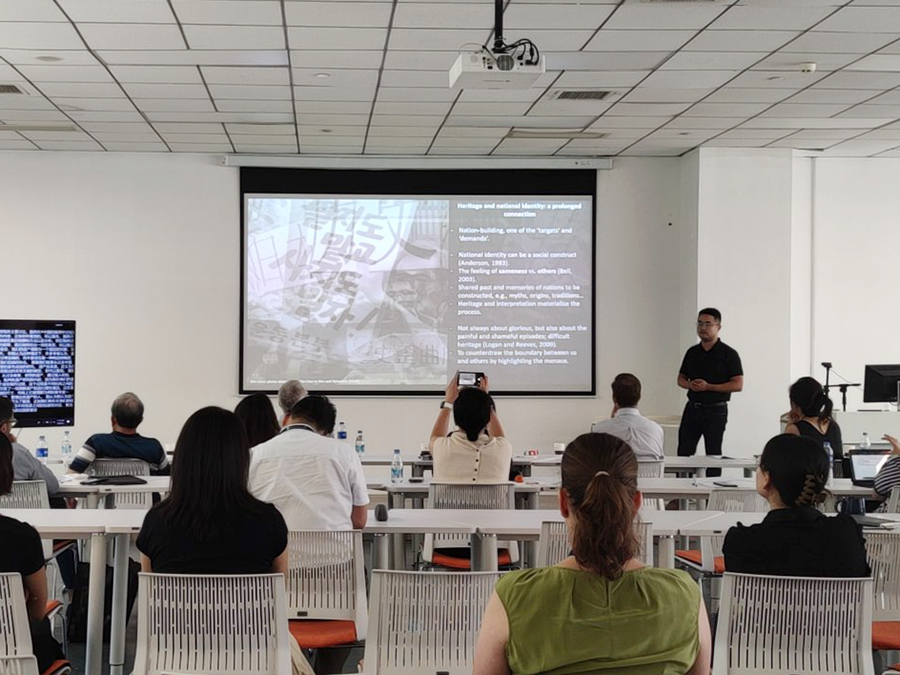
Gao Du elaborates on the connection between nation-building and the use of dark heritage
Conflicting Narratives and Remembrance
Yiping Dong from XJTLU discussed “The complexity of textile heritage in the Yangtzepu area of Shanghai”, providing insights into the less known narratives of textile heritage. Her research reveals how industrial and dark heritage are intricately interwoven due to the frequently oppressive conditions of the industrial era and the colossal losses of livelihood that resulted once many of the factories around the world were relocated and dismantled.
Yiwen Wang and Beixi Sun from XJTLU tackled “Shifting narratives and remembrance of the British colonial past in Shanghai: the case of the Ward Road (Tilanqiao) Prison, 1903”, examining evolving perceptions of colonial history. Today, designated as a National Level heritage site, the prison tells a lasting story of Shanghai’s colonial past and has seen the city’s and the country’s transition through its various political, economic, and power changes.
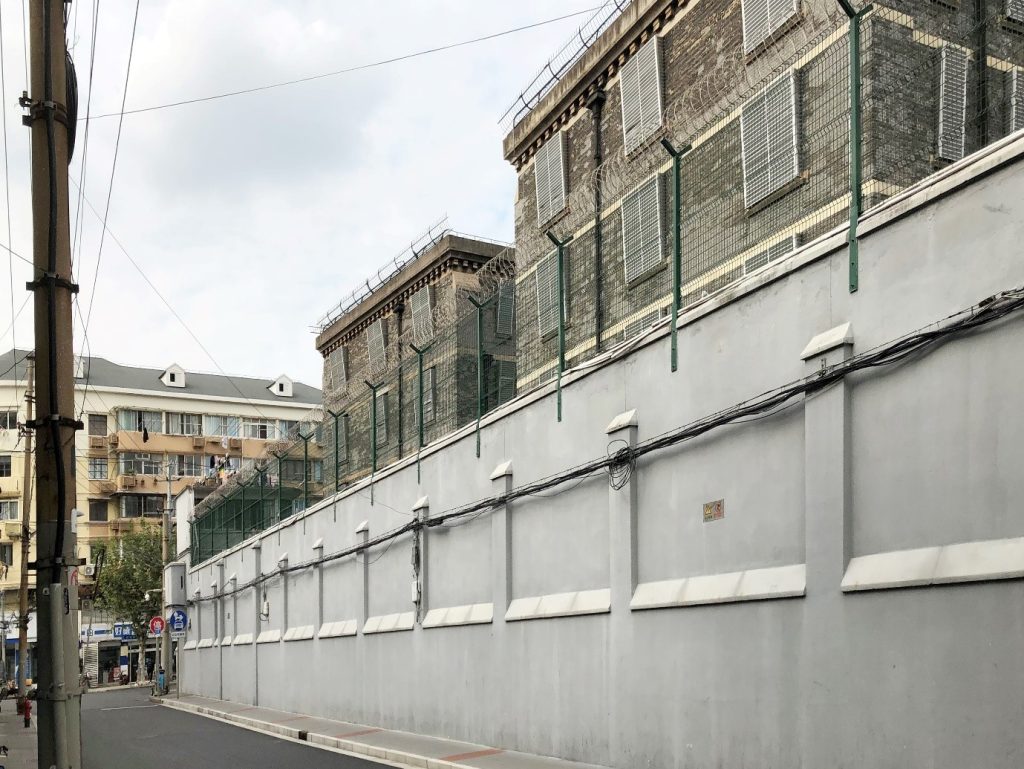
The Tilanqiao Prison in Hongkou District, Shanghai, is scheduled to be relocated by the end of 2023. This British colonial-era gaol is envisaged to emerge as a captivating cultural landmark and a catalyst for the North Bunds regeneration plan
Besides the presentations, the workshop also featured a captivating forum. Jiajun Xu, a local historian in Shanghai and former Deputy Director of Shanghai Tilanqiao Prison Political Office, led this insightful discussion with his talk “A centennial prison: Tilanqiao Prison in Shanghai”, offering a deep dive into the historical significance of this landmark.
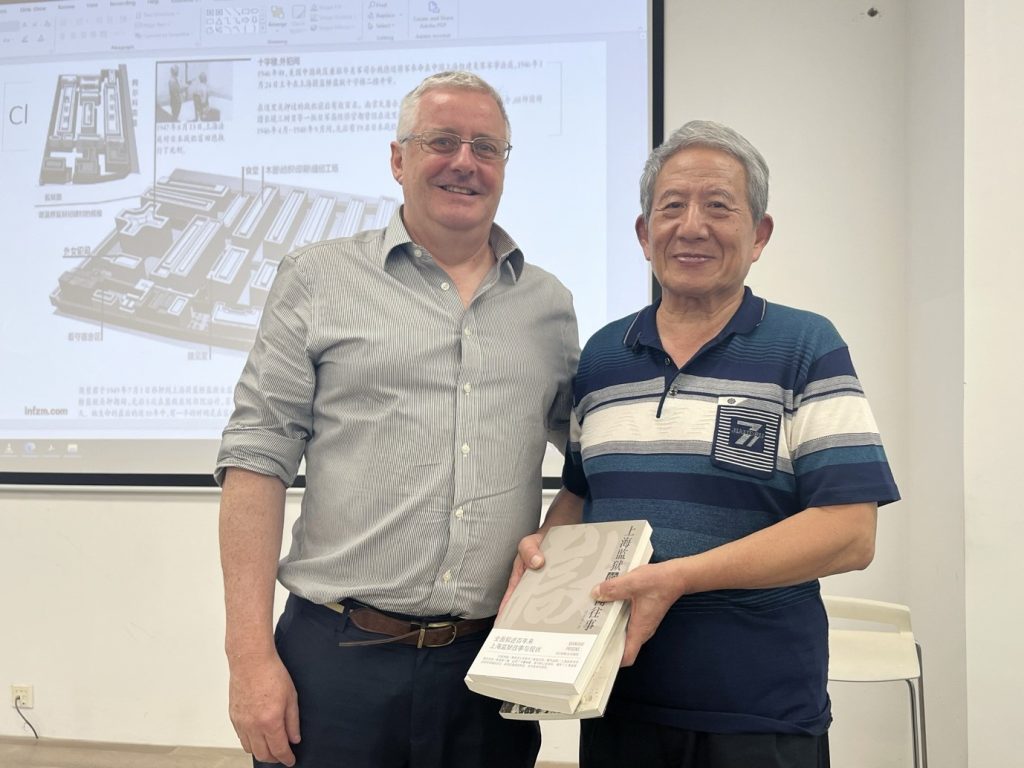
Jiajun Xu donates a copy of his latest books to the XJTLU Library
The workshop provided an enlightening exploration into the intricate connections between heritage, places, and identities, highlighting the power of dark heritage in shaping our collective consciousness. As we continue to grapple with the multifaceted aspects of our heritage, it served as a reminder of the need to confront the darker aspects of our history to create a more comprehensive and truthful narrative for future generations.
By Anna Vichnevetskaia
Edited by Yi Qian
Photos by Mengchuan Liu, Beixi Sun, Jiayi Li, and Yiwen Wang
27 Sep 2023








